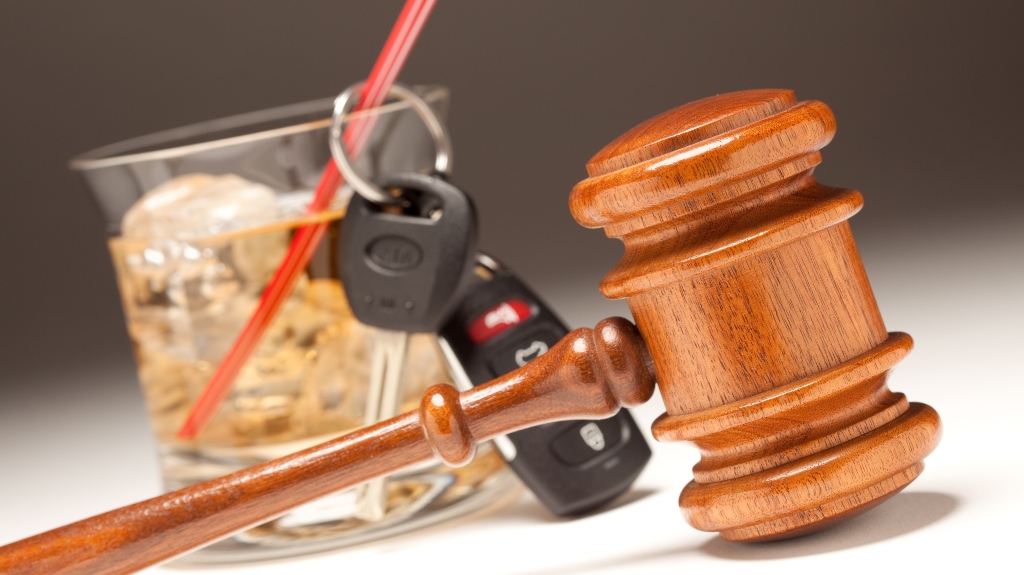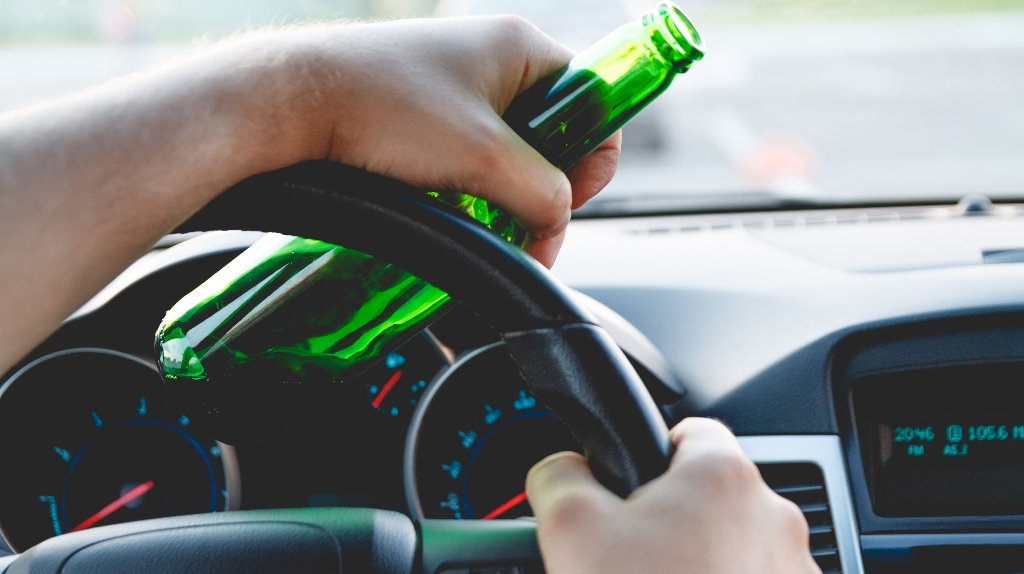Operating Under the Influence of Drugs in Massachusetts
Understanding the Issue of OUI & Drugs
Operating under the influence of illegal drugs or controlled substances is a very serious offense in Massachusetts, and one that is strictly prosecuted. If you are found to be driving while under the influence of an illegal or controlled substance, or if you are driving while taking certain prescription medications, you could be charged with a drug OUI.
Penalties
G.L. c. 90, § 24 covers operating under the influence of intoxicating liquor as well as drugs. The language of the statute specifically includes marijuana, as well as narcotics, and any controlled depressant or stimulant substances.
The penalties for a drug OUI are very similar to those for driving under the influence of alcohol:
- License Suspension: 1 year to permanent loss of license
- Fines: $500 to $50,000
- Jail sentence: Up to 10 years
If the arresting officer finds any illegal substances such as cocaine, marijuana, methamphetamines, ecstasy, or any other controlled substance on your person or in your vehicle, you could be charged with possession as well as OUI.
OUI-Drug Detection
Drug Recognition Experts
One of the difficulties the prosecution faces in an OUI-drugs case is proving that the observations of the police are related to or caused by a drug or medication. The opinion as to the effect of a drug on the human body is based upon scientific principles that a lay person or police officer is unable to provide, and therefore expert testimony from a medical professional is needed in order to properly prosecute an OUI-drug offense.
In an attempt to overcome this difficulty, the National Highway Traffic Safety Administration (NHTSA) has adopted a Drug Recognition Expert (DRE) Program. This program was developed by police associations without the assistance of any medical experts or the scientific community. The DRE program is used to train police officers to recognize the behaviors and symptoms associated with the use of certain drugs.
These DREs are brought to the station to perform an evaluation on the detained individual when their driving or behavior is inconsistent with a breath or blood alcohol level. The evaluation consists of twelve steps and results in the DRE forming an “expert opinion” as to impairment related to drugs. Evaluation procedures are meant to assist officers in determining not only what category of drug, but the specific drug that is causing the alleged impairment. However, because there is communication between the arresting officer and the DRE, there is often confirmation bias present in any “expert opinion” provided by the DRE.
All that is required for an officer to become a DRE is completion of a two-week training involving classroom and hands-on learning. At the end of the training, there is an exam and the individual must receive an 80% or above. Certification requires no medical expertise, background, education, or training.
DREs and the 12-step protocol used to evaluate suspected drug-impaired drivers are not generally accepted by the scientific community. Moreover, Massachusetts District Courts have repeatedly refused to allow the testimony of DREs as expert testimony at trial, holding that the 12-step protocol has not been properly validated and is not forensically reliable.
Advanced Roadside Impaired Driving Enforcement
Officers who have not received DRE training may have undergone a different type of training to detect drug impairment. NHSTA has also developed the Advanced Roadside Impaired Driving Enforcement (ARIDE) program. The ARIDE program is intended to improve officers’ ability with standardized field sobriety tests and other non-standardized field sobriety tests including the lack of convergence test, the modified romberg test, and the finger to nose test. Not one of these tests has been validated to determine impairment based upon drug ingestion. The training focuses heavily on the ability to evaluate a suspected drug-impaired driver’s eyes.
ARIDE training consists only of 8 sessions which presents medical and scientific based information. As with DRE training, officers are not required to have any medical expertise, background, education, or training. An ARIDE certified officer is merely able to provide an expanded opinion on standardized field sobriety testing.
Operating Under the Influence of Marijuana
While marijuana use is now legal in Massachusetts for those 21 years old and over, driving under the influence of marijuana remains a criminal offense. With the change in Massachusetts law, the Commonwealth is aggressively prosecuting these types of cases. In addition to proving the elements of the OUI charge, the prosecution must also prove that the consumption of marijuana actually impaired your ability to drive. Commonwealth v. Daniel, 464 Mass. 746 (2013). Impairment, however, is difficult to determine, since there is no general scientific agreement as to the physical or psychological effects of marijuana because they can vary widely from person to person.
Unlike with alcohol, there is no immediate test to determine if you have recently consumed marijuana. THC, the primary psychoactive component in marijuana, stays in your system for up to 30 days. This makes it difficult to determine when marijuana was actually used and how it may or may not have impacted your ability to drive. It is even more difficult to determine a level of impairment for chronic users of marijuana as their continuous use builds an overall tolerance to the drug. As a result, police have become more reliant on roadside assessments that assess balance and coordination, such as the one-leg stand and the nine-step walk and turn. Police may also conduct tests that evaluate your mental state, such as reciting portions of the alphabet or counting backwards. However, these tests were originally developed to test for alcohol intoxication. They are not reliable to test for marijuana and can be challenged in court.
Listen to Atty Bernard when he gives the advice. His staff was great. Thank you, Joe, and keep up the good work.
Operating Under the Influence of a Prescription Drug
While taking medications prescribed by your doctor may be perfectly legal, driving while using the medication may not be. Some prescription medications can cause drowsiness, slow reaction times, or otherwise impair your ability to drive. You should talk to your doctor about the potential impact your medication may have on safe driving prior to getting behind the wheel.
Police officers may pull you over if they notice signs of impaired driving. You may be asked to submit to a breath test or field sobriety tests, but these may not be indicative of being under the influence of prescription drugs. However, other signs may be used to prosecute you. A blood or urine test may indicate the presence of the medication in your system.
In order to prosecute you, the Commonwealth must prove that the medication is a particular drug, one specified in the OUI statute; they cannot simply claim the medication is a “narcotic.” For example, in Commonwealth v. Green, the government had to prove that codeine qualified as a narcotic under the statute, since codeine itself was not specified. 408 Mass. 48, 50 (1990). In Commonwealth v. Ferola, simply proving that the defendant was under the influence of “depressants” was not sufficient for an OUI conviction. 72 Mass. App. Ct. 170, 173 (2008). In these cases, a DRE may be called to the scene or station to evaluate you.
Building an OUI-Drugs Defense
In order to prosecute you for OUI-drugs, the Commonwealth must prove that you operated a motor vehicle, on a public way, under the influence of drugs as defined under Massachusetts law, specifically G.L. 94C, § 1. It is vital that you have an expert defense attorney to assess all possible challenges to each of these elements.
Expert Testimony
Proving an OUI-drugs case is complicated and likely requires the prosecution to present expert testimony. In many instances, without proper expert testimony, the prosecutor will be unable to meet their burden of proof. For instance, Massachusetts law states that the mere presence of a substance in a defendant’s blood is not sufficient evidence to find a defendant is under the influence. Commonwealth v. Shellenberger, 64 Mass. App. Ct. 70 (2005). Moreover, for evidence of the presence of a substance to be admissible, there must be reliable evidence as to the amount or concentration of a substance in the defendant’s blood. Even then, expert testimony is required to provide evidence that the concentration of a particular drug in the defendant’s system would impair his or her ability to drive. Id.
Field Sobriety Testing
Police are limited in their ability to testify as to a motorist’s performance on field sobriety tests in OUI-drugs cases. In Commonwealth v. Gerhardt, the SJC held that in a prosecution for OUI-marijuana, law enforcement may not testify regarding the administration or results of field sobriety tests. 477 Mass. 775 (2017). Officers may, however, testify as to their observations during field sobriety tests to the extent they involve skills necessary to operate a motor vehicle, such as balance, coordination, and mental acuity. Police may only refer to these observations as roadside assessments, not as any form of a test in light of the fact that field sobriety tests were developed based upon consumption of alcohol, not drugs. Officers are also prohibited from testifying as to whether or not a defendant passed or failed these roadside assessments, nor are they permitted to testify as to any opinion on whether or not performance established that the defendant was under the influence of marijuana. Furthermore, performance of these roadside assessments alone is not enough to establish guilt beyond a reasonable doubt.
Drug Identification
If you have any drugs on you or in your vehicle when stopped by police and police suspect you are under the influence of those drugs, the drugs must be formally identified in order to prosecute you. Commonwealth v. Paine, 86 Mass.App.Ct. 432 (2014). Generally, police officers are not qualified to make this identification. Officers cannot simply state that they believe a substance is a particular drug, or that a substance looks like a particular drug, without specialized training or expert qualification. Commonwealth v. Charles, 456 Mass. 378 (2010). The best evidence identifying a substance comes from testing in the state crime laboratory using gas chromatography. Without a chemical test, the Commonwealth may not be able to meet its burden of proof.
Although most drugs are identified using gas chromatography, in Massachusetts, the state crime laboratory utilizes a visual process to identify flower marijuana. Commonwealth v. MacDonald, 459 Mass. 148 (2011). This means that a chemist from the state crime laboratory may testify that a substance is marijuana based merely on its appearance and feel. Without a chemical analysis, the substance’s potency, and therefore its potential effect on a driver, is unknown. Moreover, in light of the popularity of synthetic marijuana, there may be issues with the forensic reliability of a visual identification. Thus, an expert’s qualifications and methods used to identify marijuana should be challenged in court.
Call Today for Trusted DUI Defense
When it comes to a OUI/DUI-drugs charge, an understanding of the scientific requirements of evidence plays a vital role in your defense. The Massachusetts DUI/OUI lawyers at the Bernard Defense Team understand how important it is to take these factors into account when preparing a defense for the firm’s clients.



